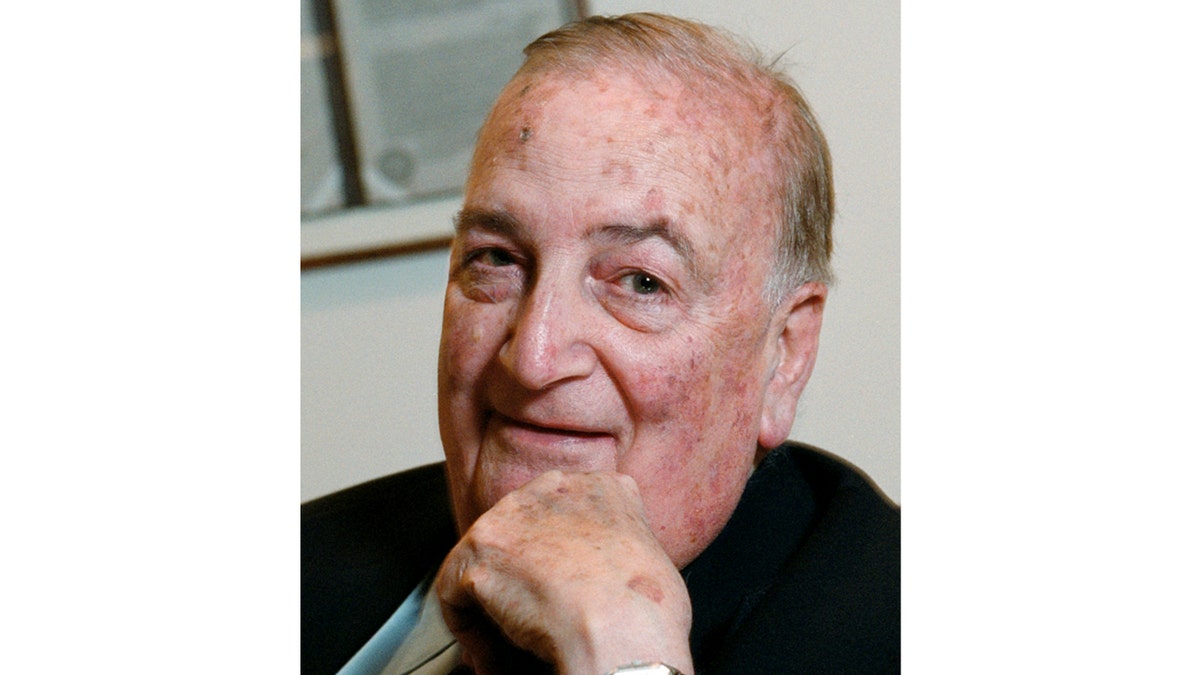
This undated photo of Dr. Baruj Benacerraf released by Dana-Farber Cancer Institute. He shared the 1980 Nobel Prize in Physiology or Medicine and served as president of the Boston-based Dana-Farber Cancer Institute. (AP Photo/Dana-Farber Cancer Institute)
A Venezuelan-born, Nobel Prize-winning immunologist died Monday from complications of pneumonia, his family said. He was 90.
A physician-scientist, Baruj Benacerraf gained attention after he discovered that genetic factors played a central role in the function of the immune system. That finding led to a 1980 Nobel Prize for him and colleagues Jean Dausset of Université de Paris and George Snell of Jackson Laboratory in Bar Harbor, Maine. The prize was in Physiology or Medicine.
He also led the Dana-Farber Cancer Institute. As president of the Boston-based institute, Benacerraf oversaw its expansion and recruited top researchers, where they could also serve as teaching professors at nearby Harvard Medical School. In addition, Benacerraf chaired the Department of Pathology and was the George Fabyan professor of comparative pathology at Harvard Medical School from 1970-91.
Benacerraf stepped down as Dana-Farber president in 1992, but he continued working daily in his own lab at Dana-Farber into his 80s and hosted an annual symposium.
"Dr. Benacerraf's seminal discoveries about genetic control of the immune system made possible much of what we now know about basic disease processes such as infection, autoimmune disorders and cancer," said current Dana-Farber President Edward J. Benz Jr. "His work has shaped everything from organ transplantation to AIDS treatment to, most recently, the development of therapeutic cancer vaccines."
Born in Caracas, Venezuela, Benacerraf was of Spanish-Jewish ancestry and was raised in Paris. He came to the U.S. in 1939 to attend Columbia University and the Medical College of Virginia. In his 1998 autobiography, "From Caracas to Stockholm: A Life In Medical Science," he discussed the anti-Semitic quota systems and anti-foreigner bias he encountered in being rejected by 25 medical schools — including Harvard.
In 1956, he went to New York University School of Medicine to work in cellular immunology, where his students included future Dana-Farber colleagues Steven Burakoff and Stuart Schlossman.
"He was extremely considerate of people and had sensitivity for their needs," Schlossman said. "He created an environment where everybody could prosper, and young people could develop wonderful careers of their own. The scientific health of our community was supported tremendously by Dr. Benacerraf."
Benacerraf's wife, Annette Dreyfus, died in June.
He is survived by brother Paul Benacerraf, a Princeton University philosophy professor; daughter Beryl Benacerraf, a Harvard Medical School professor; and two grandchildren.
Funeral services haven't been announced.
Based on reporting by The Associated Press.
Follow us on twitter.com/foxnewslatino
Like us at facebook.com/foxnewslatino







































